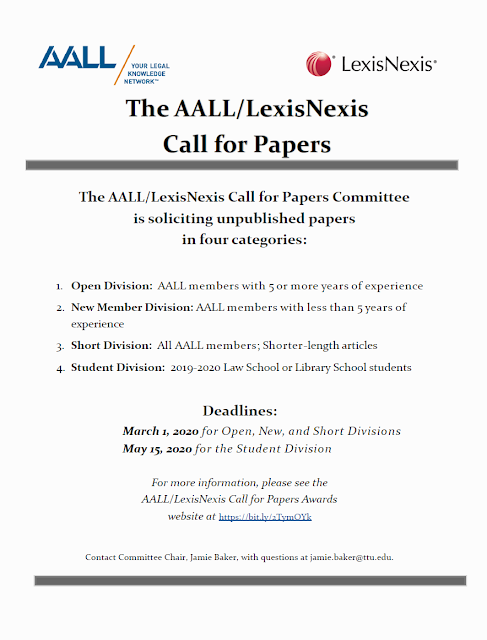Glassmeyer's Census of State Legal Information
Our profession's resident awesome law librarian Sarah Glassmeyer is currently a fellow at Harvard's Library Innovation Lab, and she just released an important census of state legal information.
Why perform this census, you might ask? For a variety of reasons, as Glassmeyer points out:
First of all, the United States is facing an access to justice crisis in its legal system. A 2005 study by the Legal Services Corporation showed that 80% of the civil legal needs – legal needs in which there is no constitutionally guaranteed right to an attorney – in the United States are going unmet. The United States ranks 66th out of 98 countries in a ranking of access and affordability of civil legal services. Individuals are relying on self-help resources, either provided by a library or the web.
Secondly, due to the relative ease of web-based publishing, states are increasingly making the Internet the primary place of publication for their legal information materials. In response to this, the Uniform Law Commission drafted the Uniform Electronic Legal Materials Act (UELMA). This act requires states to ensure that their official legal publications on the web are authentic and preserved. In the past two years, 12 states have adopted UELMA, albeit somewhat unevenly. Of the 12, only 5 states include court appellate decisions in the requirements for their version of UELMA. As more states are considering UELMA, it was thought that it would be useful to take a “state of states” snapshot to see where things stand in a pre-UELMA world.
The overall findings show that no state has barrier-free access to information. In fact, the findings indicate that there exists at least 14 barriers to accessing legal information. These barriers exist for both the individual user of a resource for personal research as well as a institutional user that would seek to republish or transform the information.
Additionally, analysis of the legal information provided by states shows that it is impossible to do any but the most basic of legal research for free using state provided legal information sources. And the universal lack of a citator for case law renders these collections, as a practical matter, useless and would be considered malpractice for a legal practitioner to rely upon.
Ultimately, Glassmeyer ranked states for openness of legal information. Check out how your state ranks.
And like any professional researcher, Glassmeyer offers recommendations for improvement and also provides access to her raw data for further reflection.


Comments
Post a Comment